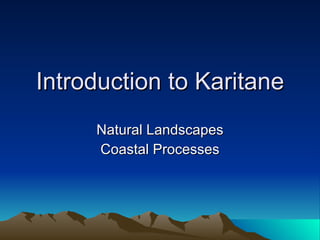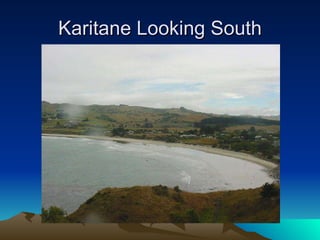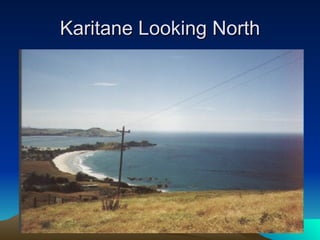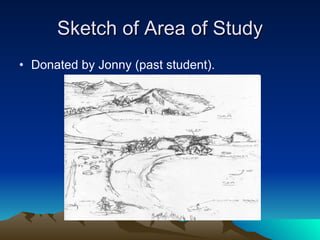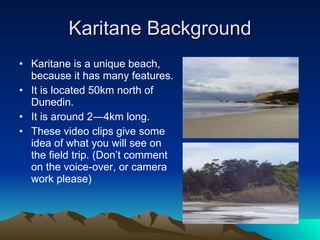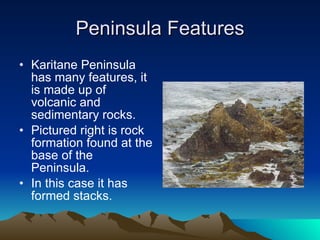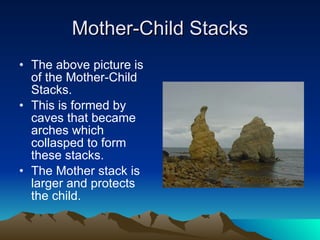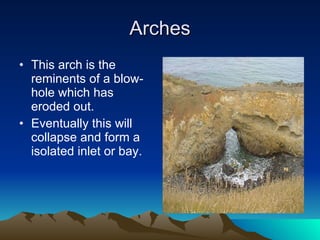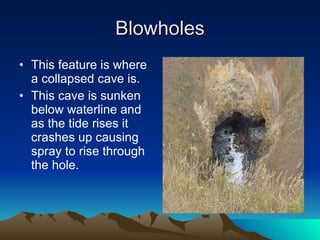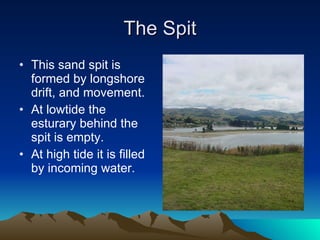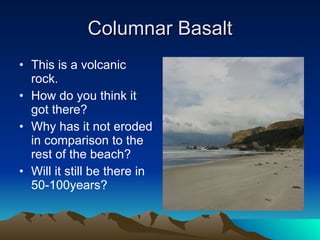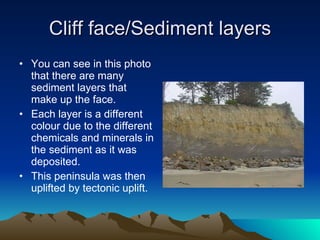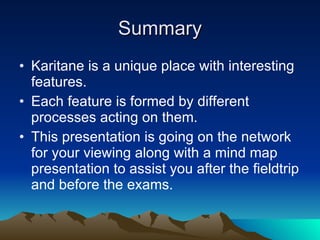Introduction to karitane
- 1. Introduction to Karitane Natural Landscapes Coastal Processes
- 4. Sketch of Area of Study Donated by Jonny (past student).
- 5. Karitane Background Karitane is a unique beach, because it has many features. It is located 50km north of Dunedin. It is around 2 ®D 4km long. These video clips give some idea of what you will see on the field trip. (Don°Øt comment on the voice-over, or camera work please)
- 6. Peninsula Features Karitane Peninsula has many features, it is made up of volcanic and sedimentary rocks. Pictured right is rock formation found at the base of the Peninsula. In this case it has formed stacks.
- 7. Mother-Child Stacks The above picture is of the Mother-Child Stacks. This is formed by caves that became arches which collasped to form these stacks. The Mother stack is larger and protects the child.
- 8. Arches This arch is the reminents of a blow-hole which has eroded out. Eventually this will collapse and form a isolated inlet or bay.
- 9. Blowholes This feature is where a collapsed cave is. This cave is sunken below waterline and as the tide rises it crashes up causing spray to rise through the hole.
- 10. The Spit This sand spit is formed by longshore drift, and movement. At lowtide the esturary behind the spit is empty. At high tide it is filled by incoming water.
- 11. Columnar Basalt This is a volcanic rock. How do you think it got there? Why has it not eroded in comparison to the rest of the beach? Will it still be there in 50-100years?
- 12. Cliff face/Sediment layers You can see in this photo that there are many sediment layers that make up the face. Each layer is a different colour due to the different chemicals and minerals in the sediment as it was deposited. This peninsula was then uplifted by tectonic uplift.
- 13. Summary Karitane is a unique place with interesting features. Each feature is formed by different processes acting on them. This presentation is going on the network for your viewing along with a mind map presentation to assist you after the fieldtrip and before the exams.

